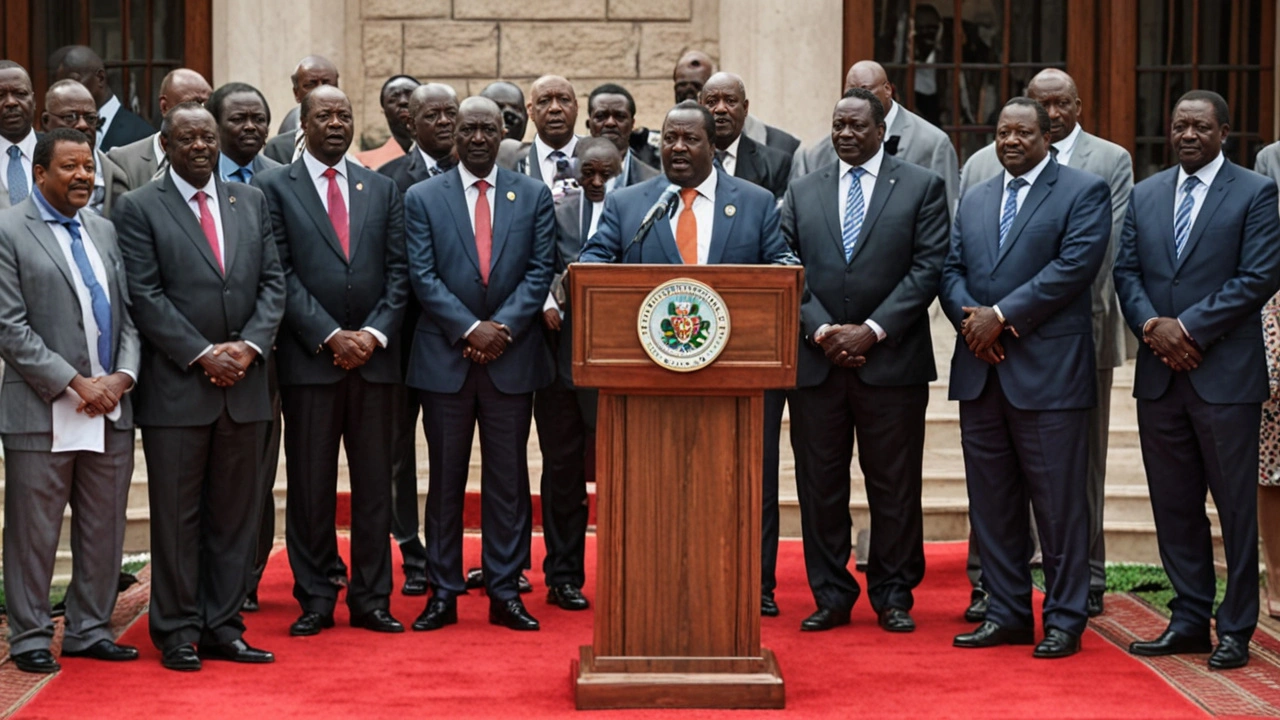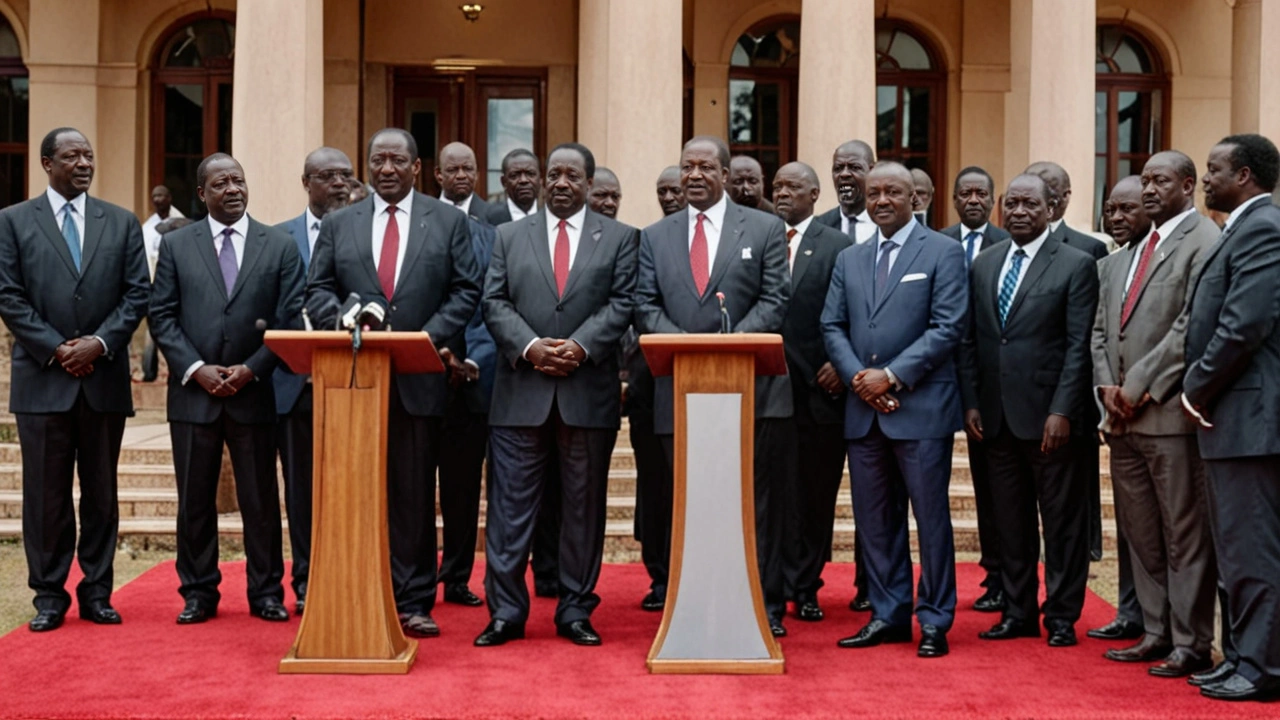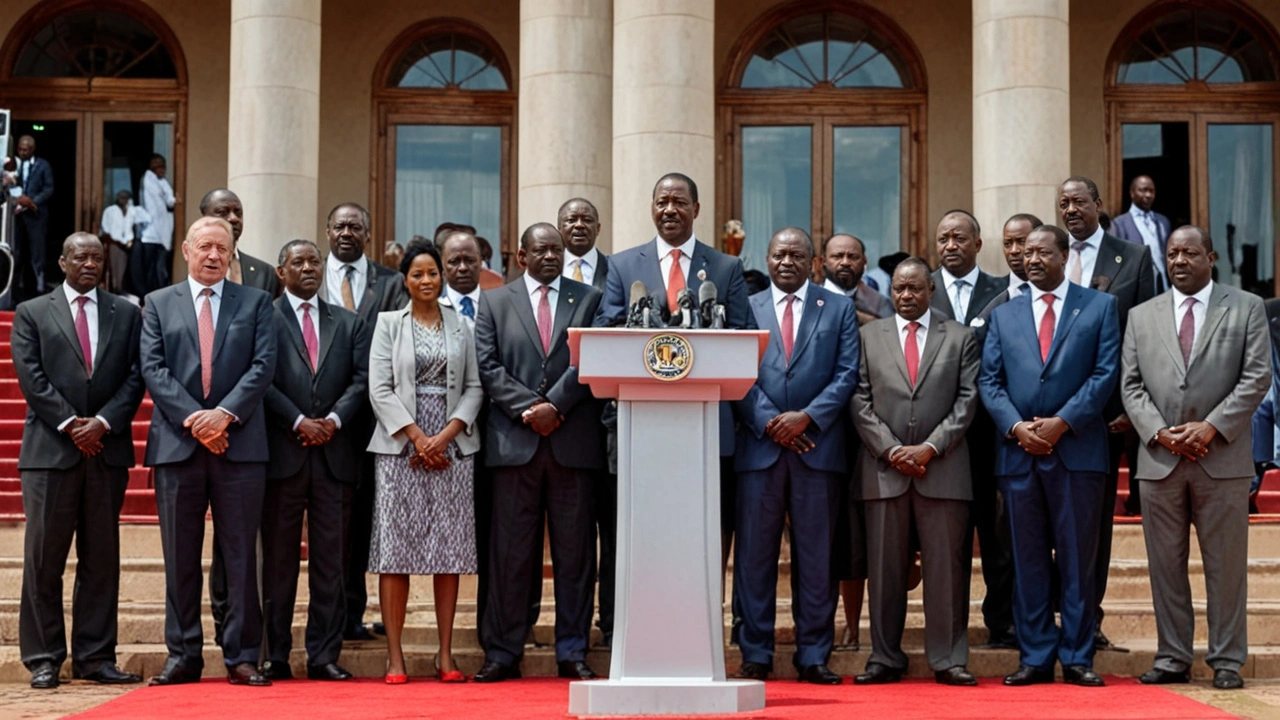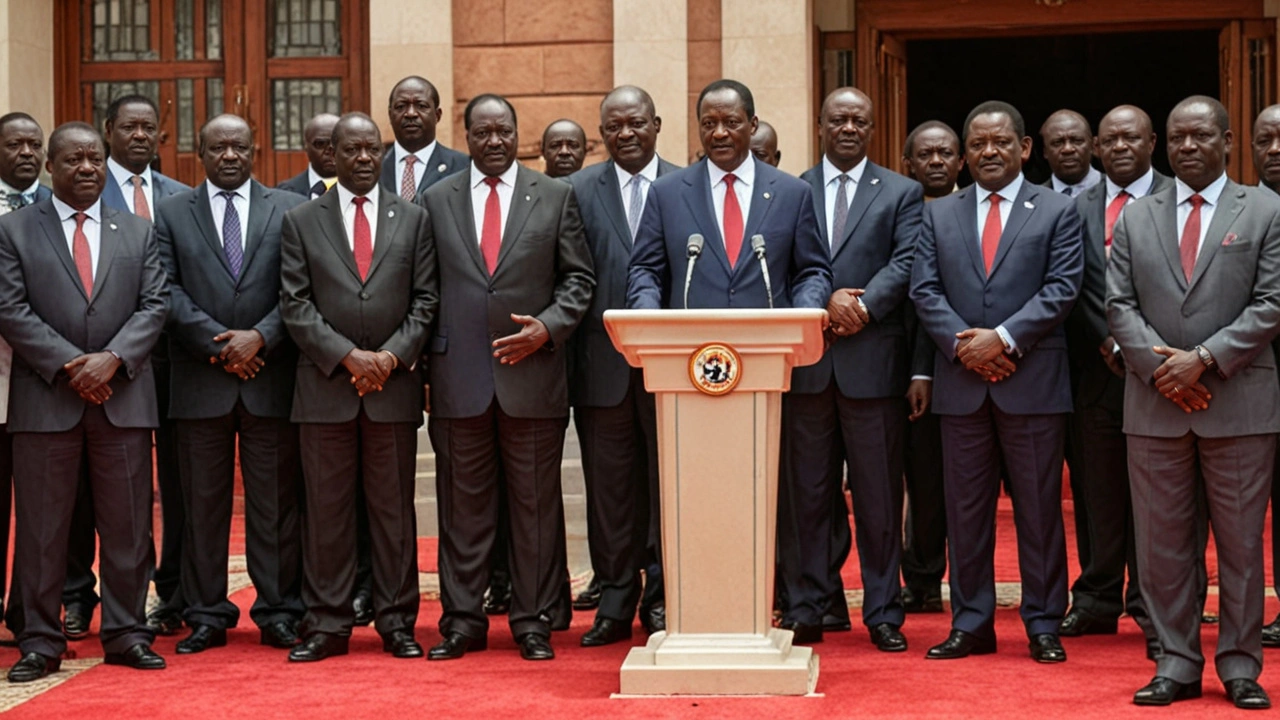Raila Odinga's Unexpected Move
Long-time opposition leader Raila Odinga has found himself in the crosshairs of public scrutiny, especially from the increasingly vocal Gen Z activists. Odinga's decision to join President William Ruto in calling for dialogue has been met with a wave of criticism, particularly from activists who have been rallying for significant governmental changes. This move has left many questioning the motivations behind such unexpected political alliances.
The criticism stems mainly from the fact that these young activists have been leading an uprising, arguably embedding themselves as powerful new voices in Kenyan politics. Their goal has been clear: they demand better governance and deeper accountability from their leaders. Their swift refusal to participate in the dialogue team has further intensified their stance, underscoring their disapproval of what appears to them as political maneuvering.

The Signing of the IEBC Amendment Bill
The controversy was further fueled by the recent signing of the Independent Electoral and Boundaries Commission (IEBC) Amendment Bill into law by President Ruto. This key event witnessed the presence of notable opposition figures, including Raila Odinga and Kalonzo Musyoka. The bill's enactment is anticipated to facilitate the appointment of new IEBC commissioners, a critical step according to the administration.
This development, meant to ostensibly streamline the electoral process, has instead led to heated debates. The sudden unity displayed by these politicians has raised myriad questions and speculations. Why now, after years of visible contention and rivalry, are these leaders choosing to present a united front?
Gen Z Activists Hold Their Ground
The most vocal opposition to this unexpected alliance comes from Gen Z activists. These young voices, undeterred by the traditional political hierarchies, have been rallying for a transformation in governance that goes beyond mere electoral reforms. Their participation in protests and their creative use of social media have garnered them significant support and attention both locally and internationally.
Activists such as these have declared their disinterest in the dialogue team formed by Ruto and Odinga, viewing the call for dialogue as a distraction from their core demands. They argue that without genuine commitment to actionable change, such dialogues amount to little more than political theater. Their refusal to engage emphasizes their belief that the young generation should hold a more decisive role in shaping Kenya’s political future.

Questions Surrounding Political Motives
The motives behind Raila Odinga's agreement to join forces with President Ruto have become a subject of much speculation. Historically, the relationship between these two politicians has been marked by strong discord and competition. This newfound cooperation is a significant departure from their usual dynamic, leading many to wonder what influenced this shift.
Several theories have been proposed. Some suggest that Odinga's decision might be influenced by a strategic political calculus, aiming to maintain relevance in Kenya's ever-evolving political landscape. Others speculate about potential behind-the-scenes deals or shared interests that have brought these leaders together. Regardless of the reasons, this alliance has certainly added a new layer of complexity to Kenya's political narrative.
Public Reaction and Future Implications
The public reaction to this development has been mixed. While some citizens welcome the prospect of dialogue and cooperation between long-feuding political figures, others remain skeptical about the true intentions behind this unity. The skepticism is particularly resonant among those who have been advocating for thorough reforms and transparency.
The potential implications of this political development are significant. Should the dialogue yield substantive outcomes, it could pave the way for a more collaborative political environment. On the other hand, if it is perceived as a superficial gesture, it could deepen public disillusionment with the political process. For activists, the focus remains on ensuring that any dialogue leads to tangible improvements in governance, rather than mere political posturing.

Looking Ahead
As Kenya navigates this complex political terrain, the actions of both its seasoned politicians and its burgeoning youth activists will continue to shape the country's future. Raila Odinga's alliance with President Ruto has undoubtedly stirred the political pot, but the lasting impact of this move remains to be seen.
In the coming months, the dialogue's progress and the reaction of both the public and the activists will be crucial indicators of Kenya’s political direction. The hope among many is that this period becomes a turning point, leading to genuine reforms that reflect the will of the people, particularly the younger generation who are poised to inherit the nation.

Sherri Gassaway
July 10, 2024 AT 04:48When a seasoned politician decides to sit at the same table as a rival, it invites a quiet contemplation about the nature of power and compromise. The underlying calculus often revolves around staying relevant in a shifting political landscape, especially when younger voices are demanding real change. While the optics may appear contradictory, the move can be interpreted as a strategic pause to reassess long‑term objectives. It also signals to the electorate that dialogue, however messy, might be preferable to perpetual conflict. In the backdrop of Kenya’s evolving democracy, such alliances, however temporary, reshapes the narrative of opposition.
Milo Cado
July 10, 2024 AT 05:48🤝 It’s encouraging to see leaders attempt a bridge over what feels like a widening divide. A constructive dialogue, even if imperfect, can lay groundwork for reforms that benefit everyone. Let’s stay hopeful that this conversation moves beyond rhetoric and leads to tangible policy shifts. Unity doesn’t have to mean surrender; it can simply mean collaboration for common good. 🌍
MONA RAMIDI
July 10, 2024 AT 06:48This is just a desperate grab for relevance, and it’s painfully obvious.
grace riehman
July 10, 2024 AT 07:48i think we need to keep in mind that kenyan politics has always been a mix of old school vibes and new wave energy, so it’s cool if they try to talk but they gotta actually listen to us lil’ folks. otherwise its just same old story lol.
Vinay Upadhyay
July 10, 2024 AT 08:48Oh, great, another grand coalition of political veterans, as if Kenya needed more seasoned clowns juggling power. The narrative that joining forces magically resolves the deep‑rooted issues is as naïve as believing a band‑aid can stop a flood. First, the rhetoric: “dialogue” – a word that sounds constructive while delivering absolutely nothing but more meetings. Second, the timing: right after a controversial amendment bill, because who doesn’t love a fresh dose of legislative drama? Third, the audience: the Gen Z activists, whose energy is being dismissed as a nuisance rather than harnessed. Fourth, the implication that senior politicians suddenly care about accountability – spare us the theatrics. Fifth, the silent assumption that policy will actually shift – a fantasy worth a laugh. Sixth, the expectation that any real reform will come from a handshake rather than grassroots pressure. Seventh, the suggestion that this move will stabilize the political climate, which is about as plausible as a camel winning a sprint. Eighth, the notion that we should celebrate unity while ignoring the substantive demands for change. Ninth, the belief that the mere presence of both leaders in the same room is a victory in itself. Tenth, the irony that this “dialogue” might just be a smokescreen for consolidating power. Eleventh, the realization that the electorate is being offered a spectacle, not a solution. Twelfth, the hope that perhaps some genuine compromise sneaks in amidst the posturing. Thirteenth, the skeptic in me wonders whether any of this will survive past the next election cycle. Fifteenth, and finally, the conclusion that without real, enforceable commitments, this alliance is just another episode in Kenya’s endless political theatre.